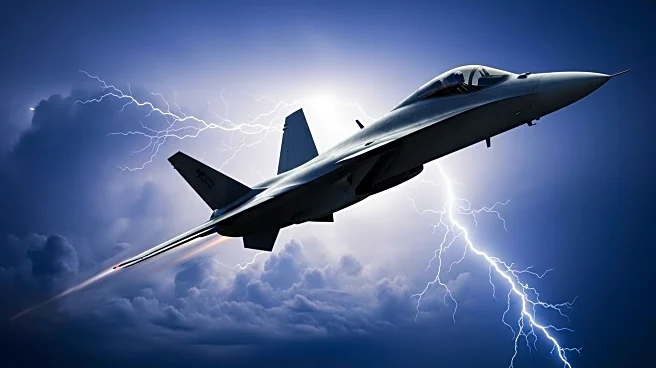What is the story about?
What's Happening?
The Netherlands' highest court is set to rule on an appeal by the government against a ban on sending F-35 fighter jet parts to Israel. The case was initiated by three Dutch rights groups who argue that transferring these parts makes the Netherlands complicit in possible war crimes committed by Israel in its conflict with Hamas. The district court initially rejected the ban, but an appeals panel later ordered the halt of shipments, citing risks of international law violations. The government contends that foreign policy decisions should be made by the government, not the courts.
Why It's Important?
The ruling could have significant implications for international arms trade and diplomatic relations between the Netherlands and Israel. A decision to uphold the ban may set a precedent for other countries to reconsider their military support to nations involved in conflicts. It also highlights the tension between judicial oversight and governmental authority in foreign policy matters, potentially influencing future legal and political frameworks in the Netherlands and beyond.
What's Next?
Depending on the court's decision, the Netherlands may need to navigate diplomatic repercussions with Israel and reassess its role in international arms trade. The ruling could prompt other European nations to evaluate their own policies regarding military exports to conflict zones. Additionally, the decision may influence ongoing debates about the ethical responsibilities of countries in supporting military actions abroad.
Beyond the Headlines
The case raises broader questions about the accountability of nations in contributing to conflicts through arms exports. It may lead to increased scrutiny of international arms trade practices and encourage discussions on the moral obligations of countries in preventing human rights violations.

















